The Day My World Transformed
On the last Wednesday of November in 1953, my fifth-grade classmates and I were all dressed as Pilgrims or Native Americans, costumes for the Thanksgiving skit we’d enthusiastically performed that morning in front of the entire elementary school. Later in the day, everyone in our class was given an opportunity to present the watercolor painting of flowers we’d each created in art class.
 When my turn came, I stood and went to the front of the classroom, anxious but proud. I took a deep breath. “This is my iris,” I said, holding my painting aloft. “I really like how the different shades of purple blend together.” My teacher smiled broadly as a few fellow students nodded and otherwise signaled their appreciation of my work. But a handful of boys in the back of the room snickered and, beneath their breath, mocked my enthusiasm. Stung by their derision, my pride dissipated, and overcome with embarrassment and humiliation, I lurched back to my desk and slumped into my chair. I was silly to think my painting was any good, I thought.
When my turn came, I stood and went to the front of the classroom, anxious but proud. I took a deep breath. “This is my iris,” I said, holding my painting aloft. “I really like how the different shades of purple blend together.” My teacher smiled broadly as a few fellow students nodded and otherwise signaled their appreciation of my work. But a handful of boys in the back of the room snickered and, beneath their breath, mocked my enthusiasm. Stung by their derision, my pride dissipated, and overcome with embarrassment and humiliation, I lurched back to my desk and slumped into my chair. I was silly to think my painting was any good, I thought.
A half hour later we’d just gone to the playground for recess when Kenny, the class bully, immediately began taunting me. “Brucie likes to watercolor,” he jeered as he shoved me backwards. Though Kenny was no bigger than most of us, he could be ruthless and intimidating. “Brucie’s a girly boy!” he persisted. Scrawny and unsure of myself, in “fight or flight” situations like this, I consistently chose the latter, a reaction that didn’t endear me to the little band of fifth-grade ruffians whose approval I longed for.

My elementary school pals and me (4th from left)
On this day, as usual, I shrank back hoping the moment would pass, that Kenny would find another victim to harass. When he aggressively lunged toward me once more, however, a suppressed rage erupted from deep within me, and I wildly rushed toward my antagonist. Startled by my ferocity, Kenny gave ground, but I grabbed him by the shirt, flung him to the ground, and jumped on top, holding him there with my forearm across his neck. A small group of guys stood mutely around, clearly astonished that anyone would challenge the undisputed top dog of the playground. Kenny, bewildered by the turn of events and unable to extricate himself, began begging for mercy: “Uncle! Uncle! I’m sorry! Please, let me up, please!”
“The king is dead! Long live the king!” shouted Jack, one of my more literate classmates. And as he spoke these words, I freed Kenny and felt the intoxicating energy of my triumph in physical combat, along with the obvious admiration of my peers, surge through me. Kenny slinked away, mumbling to himself about the fringe that had been torn from his Native American costume during the struggle. “My mama’s going to kill me,” he said in a low, quavering voice. I felt empathy for my fallen foe and for just a moment considered consoling him. Instead, however, I stuffed my feelings of compassion, stood my ground, and silently savored my newfound sense of power.
On that afternoon the arc of my life shifted dramatically. Over the coming years, through my passion for football, my dedication to running and weightlifting, and the pent-up fury I learned to unleash on opponents, I would forge myself into a fierce and formidable jock, admired and respected by teammates, fellow students, teachers, townspeople, and college football coaches. And from that day forward I would never pick up a paint brush with creative intent again.


